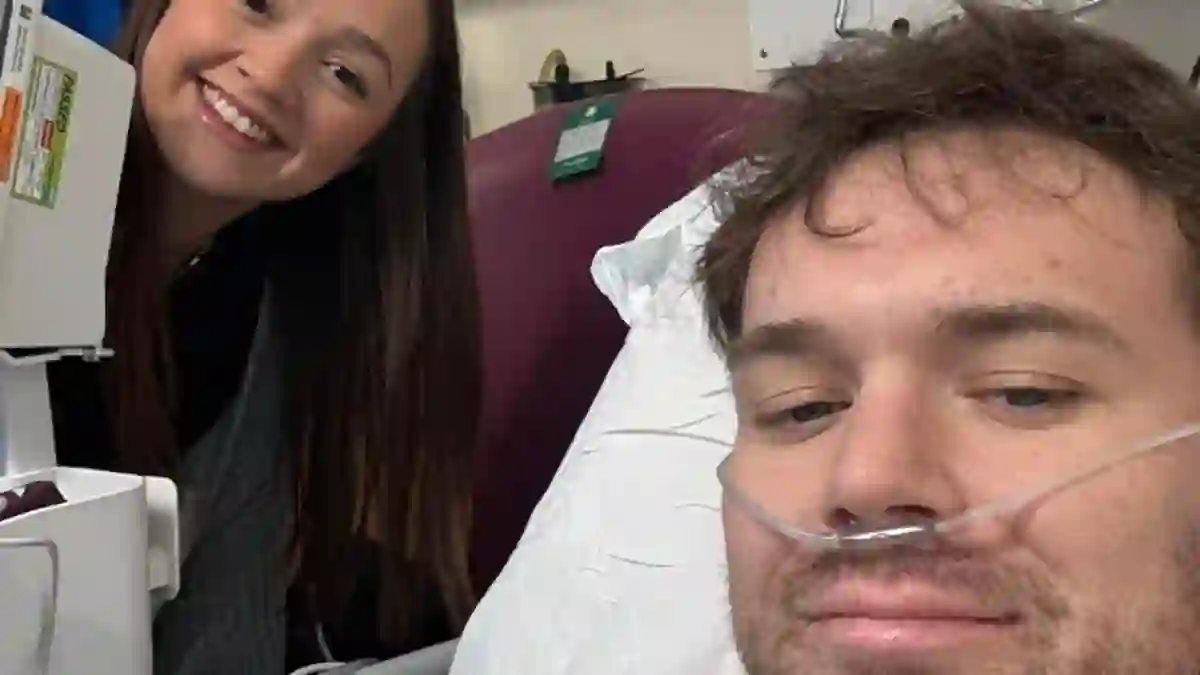Chris Kirt, a 31-year-old dad of three, never expected his life to change so drastically in less than a year.
In August 2024, he started experiencing irregular bowel movements and stomach cramps.
Like many of us might, he brushed them off.
No big deal, he thought. But when one unusual symptom showed up, he knew it couldn’t be ignored.
A Symptom That Didn’t Hurt—but Hit Hard
Chris shared his journey with his 12,000 TikTok followers, hoping to raise awareness.
He described the moment that truly alarmed him—not the cramps or irregularity, but something far more specific.
“The biggest red flag for me was seeing blood when I went to the toilet, but feeling no pain at all,” he said.
“It absolutely terrified me. I just knew, deep down, it was cancer.”
He emphasized that while people often expect bleeding to come with pain, in his case, there was none.
That contrast—blood with zero discomfort—was what made him stop and pay attention.
Why Painless Bleeding Shouldn’t Be Ignored
The NHS backs up what Chris experienced. Bleeding from the rectum or blood in the stool can sometimes occur without any pain, which is why it’s often dismissed or missed.
On the other hand, something like an anal fissure usually causes sharp pain along with bright red blood, making it more immediately alarming.
Chris described his own bleeding as “thick, dark red—light at the beginning, darker at the end.” Still, no pain.
When the System Is Slow, Sometimes You Have to Act Fast
Even though he suspected something serious, Chris hit a major roadblock: the waiting list for a colonoscopy was long, and his symptoms were getting worse by the day.
Not willing to wait, he paid for the procedure privately.
During the colonoscopy, even under sedation, Chris was alert enough to notice something was wrong.
“I saw it on the screen—this big, snotty-looking mass on the side of my colon,” he recalled.
“The room just went quiet. No one said a word.I knew in that moment—that was cancer.”
He doesn’t remember much after that. He woke up in recovery, surrounded by nurses and a doctor with a notepad. The silence said it all.
Surgery, Remission, and a Second Chance
Since then, Chris has had surgery to remove a third of his bowel.
Thankfully, he is now in remission and focused on recovery and advocacy.
As a newly-engaged software developer, he’s using his platform to speak up—especially to younger people who may think bowel cancer is a disease only older adults need to worry about.
Bowel Cancer Is on the Rise Among Young Adults
Each year, about 44,100 people are diagnosed with bowel cancer in the UK, making it the third most common cancer.
While it’s often associated with older adults, more young people are now being diagnosed—and that’s raising concerns among doctors.
Experts have pointed to possible causes like poor diet, rising obesity, chemical exposure, microplastics, even mobile phone radiation.
Some researchers even suggest E. coli contamination in food could be playing a role.
What’s especially alarming is that some of these patients, like Chris, are otherwise fit and healthy.
The Obesity Link—and What Research Tells Us
Obesity is already known to contribute to around 5% of all UK cancer cases, but for bowel cancer specifically, the number jumps to 11%.
In men, the risk reportedly increases by 10% for every 11 pounds (5kg) gained in adulthood.
But again, not every case follows that rule—meaning there’s likely more going on.
This trend isn’t just happening in the UK. American doctors have also warned of a tripling in cancer deaths linked to obesity, including colorectal cancers that are striking people under 50 more frequently than ever before.
What This Means for You
Chris’s message is simple: Don’t ignore your body. Blood with no pain? Get it checked.
Stomach issues that don’t improve? Speak up. Early diagnosis can make all the difference.
Even if you’re young, active, and seemingly healthy, it’s worth paying attention to unusual changes—especially the ones that don’t come with pain, because they’re the easiest to overlook.
